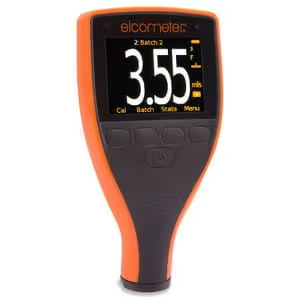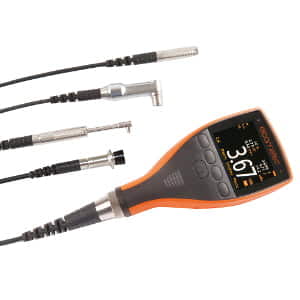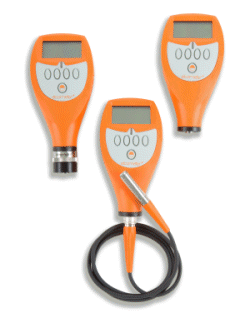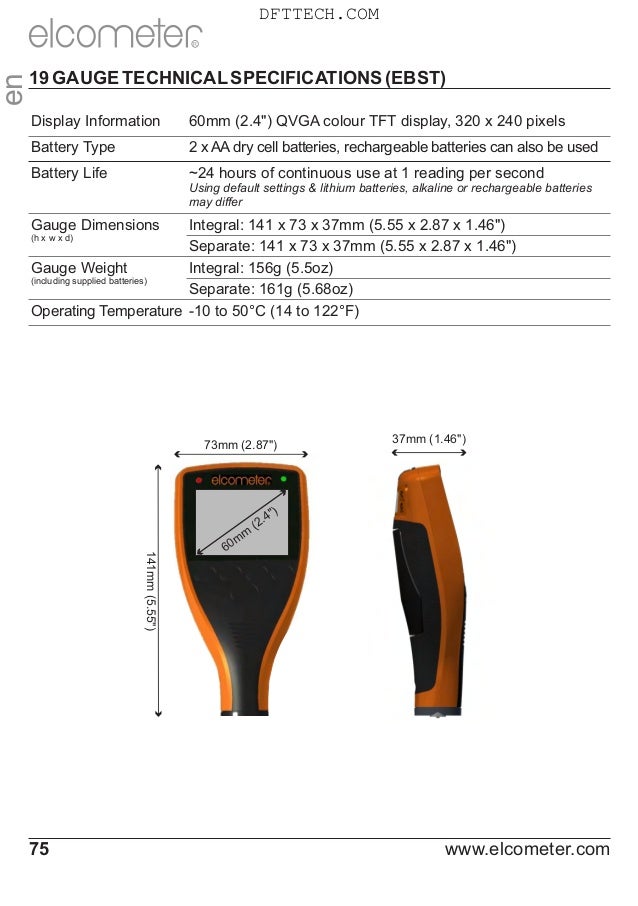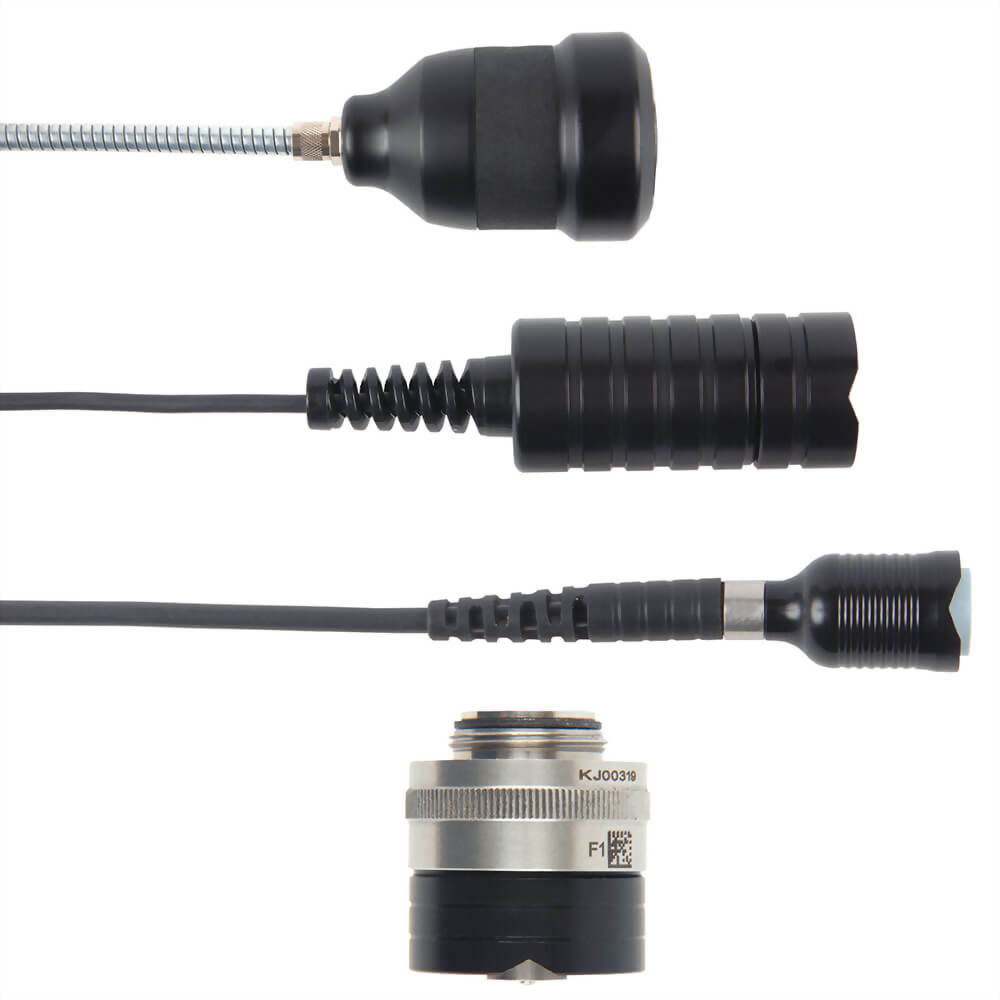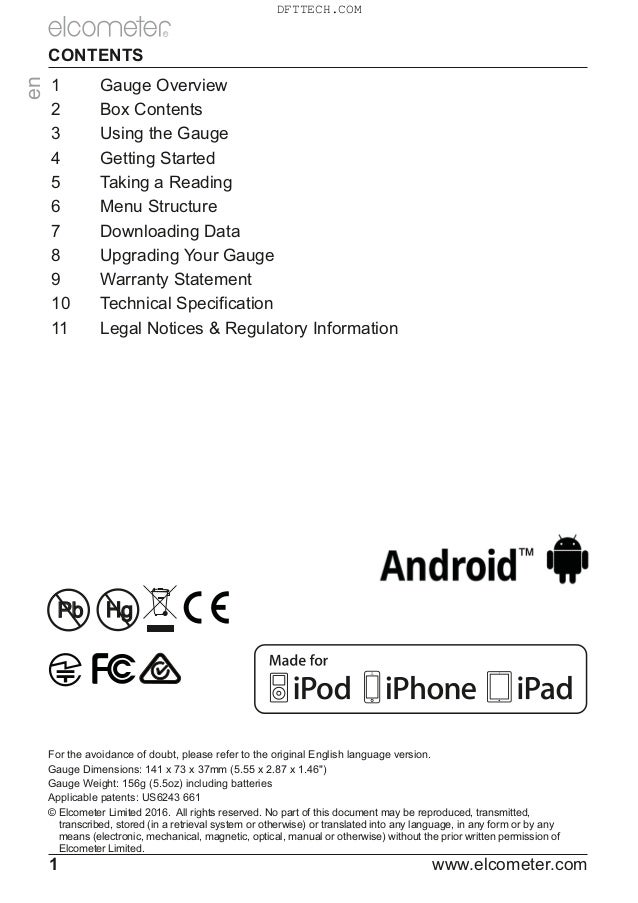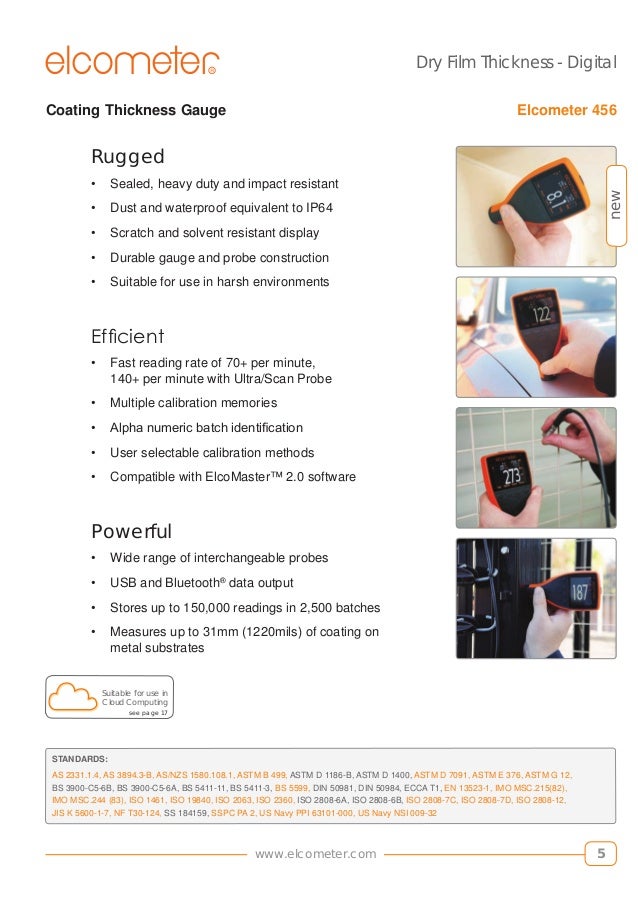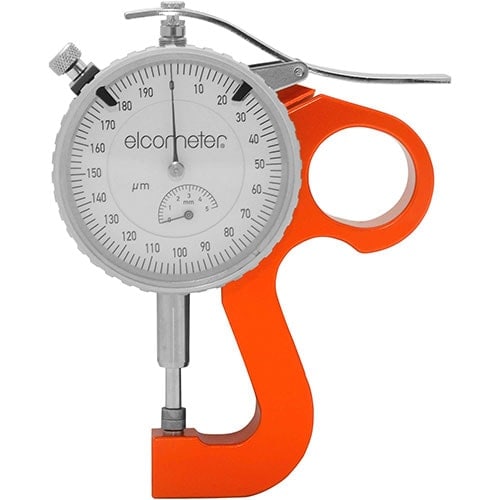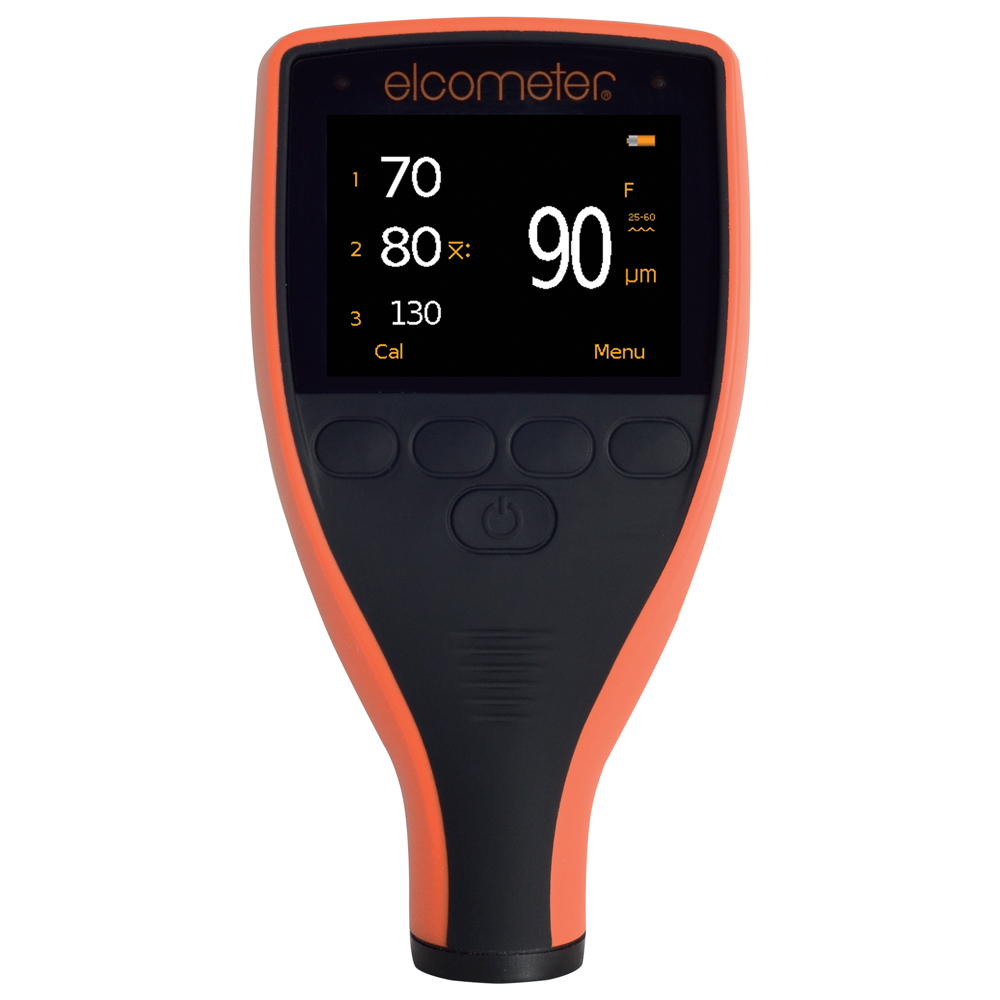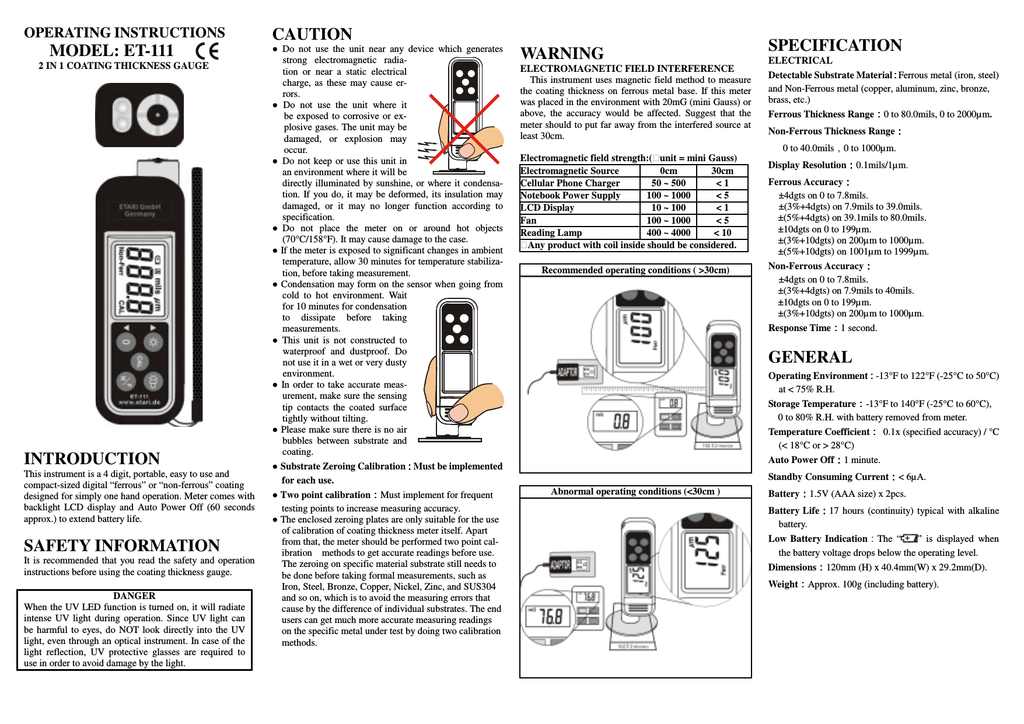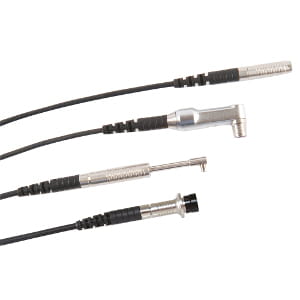The new elcometer 456 coating thickness gauge sets new standards making measuring dry film thickness faster reliable and accurate.
Elcometer 456 coating thickness gauge specification.
Elcometer probes have a maximum operating temperature of 80 c 176 f.
Each coating thickness gauge provides the user with increasing functionality from the entry level elcometer 456 model b to the top of the range elcometer 456 model t.
The elcometer 456 dry film thickness gauge is available in three different models.
Elcometer 456 coating thickness ferrous gauges accept any ferrous probe.
Choosing the correct probe for your coating thickness gauge.
Calibration foils are precisely measured using laboratory equipment and labelled with the thickness values in microns and mils allowing precise adjustment of the gauge.
Dual fnf probes measure both ferrous and non ferrous applications with automatic substrate detection.
Three user programmable custom default calibration settings.
Digital coating thickness probes.
Digital coating thickness gauges.
Helping you to become more efficient.
Elcometer 456 coating thickness gauge probe range all elcometer 456 coating thickness gauge probes are fully interchangeable and are available in a number of designs and scale ranges to meet your specific application.
Elcometer 456 fnf gauges accept all ferrous non ferrous and dual fnf probes.
The elcometer 456 dry film thickness gauge is available in three different models.
Each coating thickness gauge provides the user with increasing functionality from the entry level elcometer 456 model b to the top of the range elcometer 456 model t.
The elcometer 456 is available in four different models.
0 60 mils memory stores up to 150 000 readings in up to 2500 batch files that are each capable of storing a distinct calibration.
The elcometer 456 coating thickness gauge scan probe has been designed with a highly durable replaceable cap to eradicate probe wear and allow scanning of large surface areas increasing coating thickness measurement speed from 70 readings per minute to greater than 140 readings per minute.
Separate ferrous probes have a maximum operating temperature of 150 c 300 f.
E b s and t.

